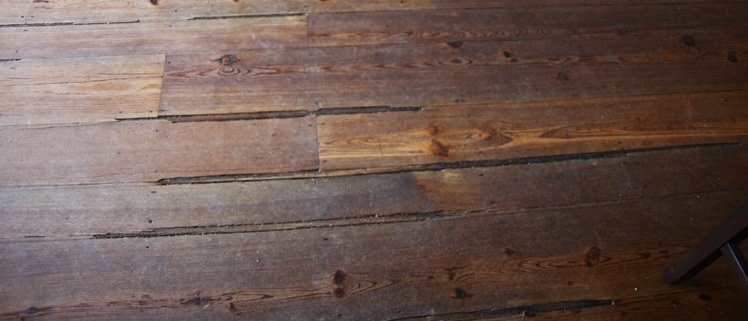
“Stability” is a hardwood-flooring term that all buyers of hardwood flooring should understand.
It refers to how hardwood flooring reacts to humidity fluctuations. The less a wood shrinks and expands due to fluctuations, the higher its stability.
Stability is important to homeowners because when hardwood shrinks or expands, the edges of a plank can become higher than the plank’s center (cupping) or gaps can open up between planks (gapping). In a worst-case scenario, the planks can even buckle away from the subfloor.
Homeowners need to consider the humidity conditions in their home when choosing a species of wood for their flooring—and when deciding whether to use solid-plank or engineered hardwood flooring.
When properly manufactured, engineered hardwood has higher stability than solid planks. Engineered floors consist of a top layer of hardwood veneer, adhered to a backing of composite material constructed with layers of wood running in opposing directions. This “lattice” design of the backing creates a “pull” that reduces the growing and shrinking that can occur with humidity fluctuations.
As for natural wood, popular species with high stability include Red Oak, White Oak, and Ash, while Maple, Hickory, and Cumaru are examples of popular species with relatively low stability.
When Stability Really Matters
In many cases, stability isn’t important because humidity levels in the rooms with the hardwood flooring are going to stay relatively constant. But in other situations, stability is a very relevant consideration.
For example, bathrooms will of course experience frequent, wide humidity swings as people bath and groom every day—cold water, hot water, steam, no water at all, over and over. We recommend the stability of engineered hardwood, even if the home has solid-plank in other rooms. (Luxury vinyl tile is another option.)
In below-ground rooms or rooms with concrete subfloors, such as finished basements, humidity and hardwood floors don’t mix well at all. In this situation, humidity fluctuations aren’t the problem—below-ground rooms are just so naturally humid (i.e., damp) that engineered flooring, with its higher stability, is the only viable hardwood option. Fluctuations are bad, but constant high humidity is even worse, and as a certified installer, we won’t install solid-plank floors below grade.
Stability is also an important consideration if a home’s windows (or doors with screen doors) will be frequently opened, such as in a vacation home at the shore. The humidity will fluctuate based on whether air is being let in and how humid that air is, and hardwood with higher stability might be advisable. Vacation homes also require either hardwood flooring that’s forgiving of humidity changes or a way to control excess humidity while the owner is away from the home.
If you’re unsure about how important stability is for your project, or you want guidance on how to pick the most stable options, we’re glad to provide our expert advice. Stop by our showroom any time during business hours to consult with one of our hardwood flooring professionals. And while you’re here, you can see for yourself the many stunningly beautiful hardwood floors that are available!















